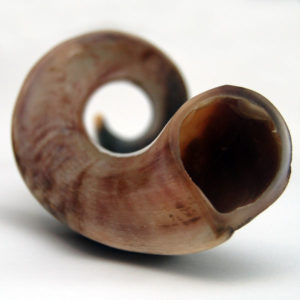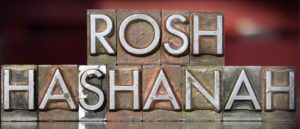Rosh Hashanah Soul Searching–Will You Be Ready?
On this Rosh Hashanah, don’t just show up. Be ready!
The Jewish New Year, Rosh Hashanah, is unlike the celebration of the secular New Year because the resolutions we make are not only to ourselves but to God. Whereas a typical New Year’s resolution on the first of January might be to go the gym and lose a few pounds, the Jewish New Year is a time to really work up a sweat and ask God as our personal trainer to help make us stronger and a better person in the year ahead.
And like everything else in Judaism, self-growth takes a lot of work, and we are expected to make mistakes along the way. Recognizing those mistakes and asking God for forgiveness is one step towards repentance. The harder part, and here comes the deed over creed, is when we build courage to ask forgiveness from the relationships in our lives who we might have hurt (intentionally or not) with our words or actions. Then we make a plan on how we would react or behave differently in the future.
In Hebrew, Rosh Hashanah means, literally, “head of the year” or “first of the year.” It is a time for new beginnings, making a clean new slate, and more importantly, reconnecting with God. The Jewish New Year, which occurs on the first and second days of Tishri, is unlike the secular New Year because number one, our Hebrew calendar is based on the moon instead of the sun, and number two, our New Year happens to be one of the holiest days of the year. Whereas the English New Year is culminated at midnight with a champagne toast followed by a hangover, the Hebrew New Year is celebrated with family and friends through lots of prayer in synagogue, blowing the Shofar, dipping apples in honey, eating round challah in the shape of a crown, and casting off our sins by tossing pieces of bread into a body of flowing water in the ritual of tashlich, all of which are symbolic and have deep personal meaning.
This year, Rosh Hashanah begins the evening of Sunday, October 2 and concludes on Tuesday evening, October 4. Yom Kippur begins with Kol Nidre on the evening of Tuesday, October 11, and concludes on Wednesday, October 12. The 10-day period in between, commonly known as the Days of Awe (Yamim Noraim) or the Days of Repentance, is when the real spiritual workout begins.
Will you be ready?
During this time, we do a lot of soul searching, not to mention eat a lot of  apple kugel, honey cake, pomegranate braised brisket, and other delicacies.
We look back and ask questions, such as:
What are my three most significant achievements in the past year?
What are my biggest mistakes in the past year? What do I really regret not doing last year?
Over the last year, did I nurture and improve my most important relationships, or did I allow them to grow distant?
What can I do to nurture those relationships this year
During the past year, what has made me really happy?
What do I really regret not doing last year? What am I sorry for?
What opportunities did I miss?
Whom do I wish I had not hurt
How might I make up for what I did?
Looking ahead, we ask:
What new goals have I set for myself for the coming year?
How would I like to do things differently in the coming year?
How will I enhance my life Jewishly during the coming year?
What project or goal, if left undone, will I most regret a year from now?
If I knew I couldn’t fail, what would I undertake to accomplish in life?
What are my three major goals in life? What practical steps can I take in the next two months toward these goals?
What is the most important decision I need to make this year?
What endeavor gives me the strongest feeling of fulfilling my purpose?
What kind of person do I want to be one year from now, five years from now?
 Rosh Hashanah is the anniversary of the creation of the world, and marks the time of God being sovereign over the world. We blow the Shofar as a coronation ceremony that God is our King. Unlike a Ruler, who makes rules and regulates what people think and do, God is King and is chosen by the people, who is always there for us, on our side, helping us to be the best person we can be, even in our darkest, most challenging times when we don’t see the light.
Rosh Hashanah is the anniversary of the creation of the world, and marks the time of God being sovereign over the world. We blow the Shofar as a coronation ceremony that God is our King. Unlike a Ruler, who makes rules and regulates what people think and do, God is King and is chosen by the people, who is always there for us, on our side, helping us to be the best person we can be, even in our darkest, most challenging times when we don’t see the light.
The Shofar, by the way, is made of a hollow ram’s horn and is blown on Rosh Hashana and Yom Kippur. This ancient musical trumpet is used as an instrument but doesn’t play music. Only a sound comes from the Shofar, and it takes every ounce of energy and breath to create this deep guttural sound.
The Shofar is a way for God to talk to us without using words because there are no words. The Shofar evokes our deepest, most inner emotions that come from our soul and can’t be expressed any other way.
The Shofar is our wake up call—a time of special inspiration and insight. Rosh Hashanah is all about preparation for the year ahead. You can’t just show up to services without thinking ahead and making the most of your opportunity for spiritual growth. The blowing of the Shofar is a good time to think about what’s really important to us. It’s a time to dig deeper within ourself. One way to prepare ourself is to make a list of questions ahead of time, such as:
When do I most feel that my life is meaningful?
What would bring me more happiness than anything else in the world?
In what areas of my life am I hiding from God?
What is one step I can commit to that will bring me closer to God?
On this anniversary of the creation of the universe, what two wishes do I have for the world?
Wishing you and your family Shanah tovah, which means “Good year!â€

